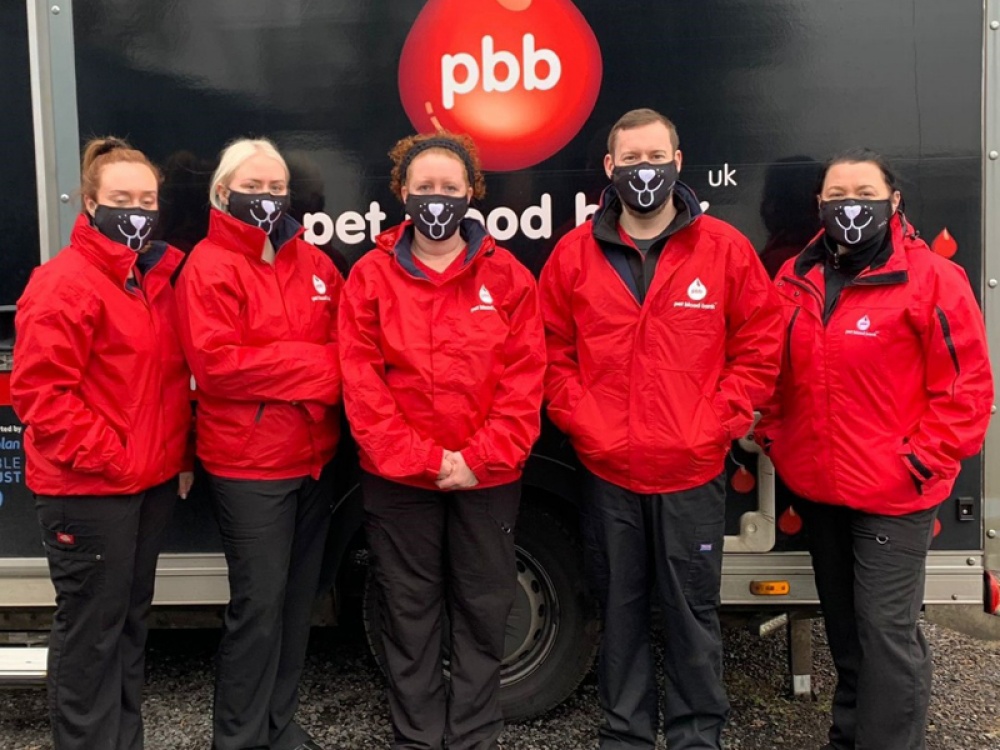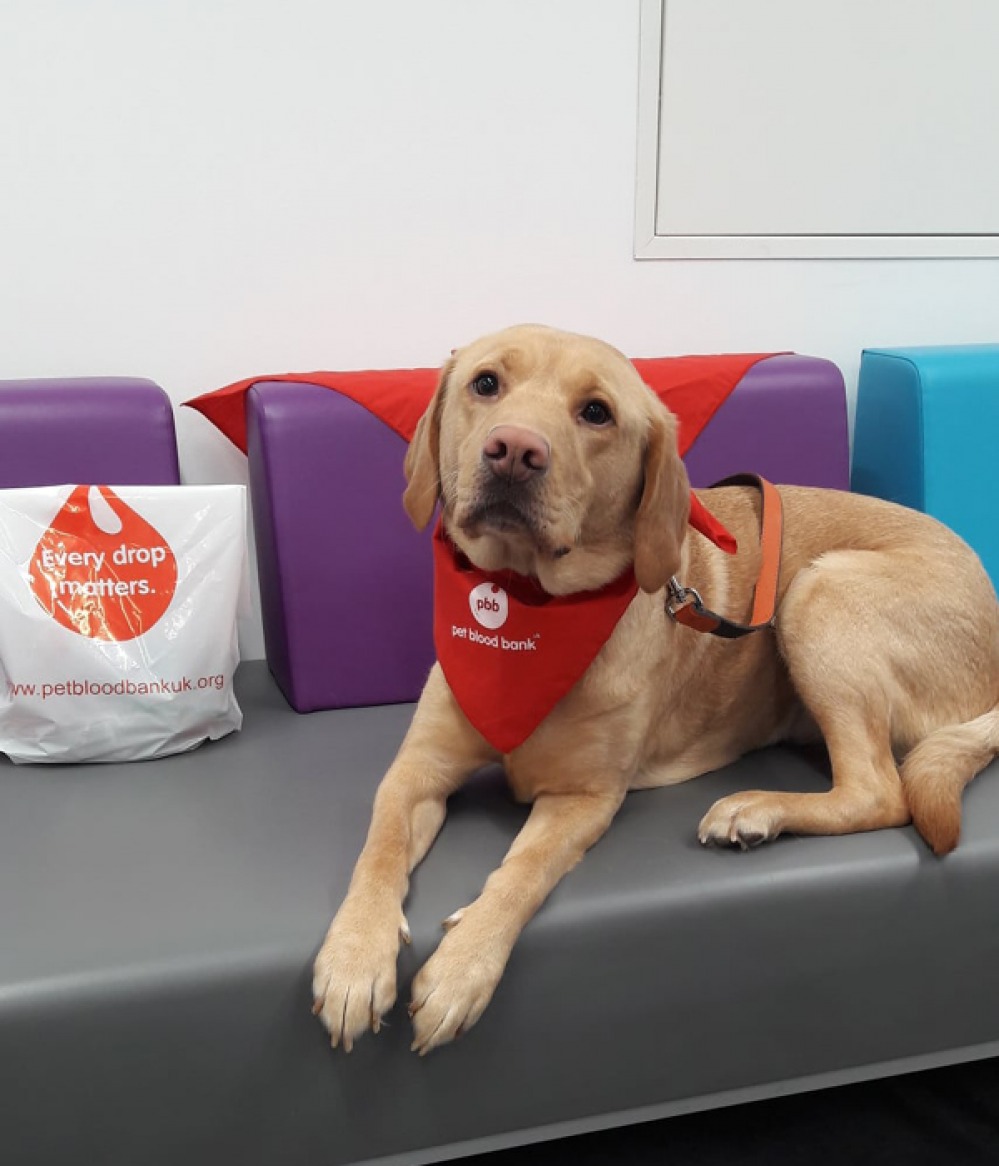How Your Dog Can Help Pet Blood Bank's National Appeal

Pet Blood Bank, together with North East coordinator Claire McNeil, are saving our furry friends one pint of blood at a time

We all know what giving blood is, it’s an extraordinary act of kindness that provides life-saving blood for transfusion up and down the UK. What some people might be unaware of is the dire need for this same kindness towards our beloved pets. Pet Blood Bank are here to fix that. Since 2007, Pet Blood Bank have expanded exponentially, now covering every region in England and Wales to ensure that they can collect as much blood as possible from big, healthy, and confident canines. North East coordinator Claire McNeil is passionate about creating a happy and exciting environment for dogs to give blood, while educating vets and owners about the miracles dog blood provides.
‘At Pet Blood Bank owners volunteer their dogs to come along and attend one of our sessions – the dogs get a health check, we make sure they’re really happy and comfortable, give them lots of attention and treats, then take a pint of blood which is sent to our head office in Loughborough to be processed into plasma and red blood cells,’ Claire explains. ‘These products can then be sent out to vets to give transfusions to dogs that need red blood cells desperately.’
Pet Blood Bank are careful to only take blood from dogs that are up to the task in both build and temperament. Ideally these are big, calm and happy dogs; especially dogs that are likely to have a negative blood group, such as German Shepherds, Dobermans, Greyhounds, Flat Coated Retrievers, Lurchers, and Boxers.
‘The dogs have to be over 25 kilos, and certain breeds are particularly good at giving blood as dog blood comes in all different types, just like human blood. What we look for most importantly is if the blood is negative or positive. Both are very valuable to us, but positive blood can only be given to others dogs that have positive blood, whereas negative blood can be given to any dog. Negative blood is much more valuable but less common – it’s like liquid gold to us.’
Pet Blood Bank is entirely non-profit, providing blood products for veterinary practices either for free or at cost price so that they can save as many dogs as possible. Pet Blood Bank also educate both vets and owners about the uses of this blood.
‘Most commonly dogs need red blood cells because they’ve become anaemic, meaning they will need a blood transfusion. If there’s a lack of red blood cells then dogs can become very sick,’ Claire explains. ‘The only way to help them is to give them more red blood cells – these don’t hang around forever as they weren’t made by that dog, but it gives vets the time to get the required medication into the dog’s system. This stabilises the dog while vets tackle the underlying source of the illness.’
Claire understands that owners may be cautious about volunteering their dogs for giving blood, as even we humans don’t necessarily like doing it at the best of times. However, Claire is eager to express that Pet Blood Bank isn’t just a doggy trip to the GP, instead it’s a fun experience and they guide owners through every step.
‘Our number one priority is always the welfare of our dogs, we want to make sure the dog isn’t nervous, frightened or anxious. We take everything very slowly, we give them loads of treats and we make it as fun for them as we can. We take their blood on a table in a really big comfy bed where most dogs fall asleep!’ she adds. ‘It’s been a little bit different with Covid, but normally we want owners to come in with us and watch their dogs be looked after. That puts a lot of owners at ease, some dogs even pull their owners in because they love the attention!’
Currently Pet Blood Bank works with vets to ensure dogs have every chance at getting the life-saving blood they need, using their facilities and databases to recruit and take blood from healthy, happy dogs while teaching vet practices about dog blood’s varied uses. However, as demand grows so does pet Blood Bank’s need for more canine heroes to come to their banks. Looking to the future, Claire expresses her gratitude to everyone who can spread the word or help participate in their upcoming events to raise awareness of the need for dog donors everywhere.
‘Please, spread the word. Most people know an owner whose pet has either received blood or given blood – we have to retire dogs after nine years so we need as many people to hear about us as possible.’







